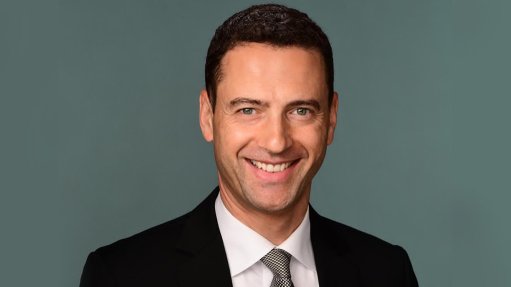South Africa seeks to be global hub for astronomy, says Science Minister
South Africa is seeking to become a global hub for astronomical facilities, Science, Technology and Innovation Minister Dr Blade Nzimande told delegates to the XXXII General Assembly of the International Astronomical Union (IAU), in his keynote address at the Cape Town International Convention Centre. For example, he cited South Africa’s MeerKAT radio telescope array and the now-under-construction international Square Kilometre Array (SKA) radio telescopes. These provided opportunities to South Africa to contribute to the global development of astronomy and Big Data processing.
(South Africa is the host country for the SKA-Mid instrument, while Australia is the host for the SKA-Low instrument. The terms “Mid” and “Low” referred to the radio frequency ranges that the two complementary arrays will cover.)
He highlighted that science and technology underpinned the country’s infrastructure development. Both the South African Astronomical Observatory (which covered optical and infrared astronomy) and the South African Radio Astronomy Observatory had supported the training of technicians and engineers.
It is an objective of the new administration to develop high speed data networks and other scientific infrastructure.
His department (the Department of Science, Technology and Innovation) is also working with the National Department of Tourism, to develop science tourism to South Africa, including visits to astronomical observatories.
He highlighted the Presidential PhD programme, to send South African postgraduate students abroad to study and gain skills in high-tech and science fields. These fields included AI and biotechnology. “I am sure astronomy will benefit from this initiative,” he affirmed.
Further, he pointed out that South Africa was working with the African Astronomical Society, to help develop astronomy in Africa. Astronomers from other African countries had been invited to the IAU General Assembly in Cape Town. He also hoped that the XXXII General Assembly would showcase the contribution of African astronomy to global astronomy.
Nzimande noted that this month was, in South Africa, Woman’s Month, in honour of the role women had played in the country’s struggle for freedom. Consequently, he stressed the importance of women in science, in general, and in astronomy, in particular. “If women aren’t central to it, it ain’t science,” he said.
He also briefly summarised the history of astronomy in Africa and South Africa. Africans had always observed the skies, although this had been closely connected with issues of survival. Thus, nomads had used the stars to help guide their migrations. Sedentary populations had used them as guides to the seasons.
In South Africa, astronomers had been making contributions to modern astronomy for some 200 years. But it was after the advent of democracy in the country in 1994 that the science really took off. The period since then had seen the development of the optical Southern African Large Telescope and the MeerKAT radio telescope, as well as other, smaller instruments. In 1994, the country had had 60 astronomers, of which five had been radio astronomers. Now it had more than 300 astronomers.
Article Enquiry
Email Article
Save Article
Feedback
To advertise email advertising@creamermedia.co.za or click here
Press Office
Announcements
What's On
Subscribe to improve your user experience...
Option 1 (equivalent of R125 a month):
Receive a weekly copy of Creamer Media's Engineering News & Mining Weekly magazine
(print copy for those in South Africa and e-magazine for those outside of South Africa)
Receive daily email newsletters
Access to full search results
Access archive of magazine back copies
Access to Projects in Progress
Access to ONE Research Report of your choice in PDF format
Option 2 (equivalent of R375 a month):
All benefits from Option 1
PLUS
Access to Creamer Media's Research Channel Africa for ALL Research Reports, in PDF format, on various industrial and mining sectors
including Electricity; Water; Energy Transition; Hydrogen; Roads, Rail and Ports; Coal; Gold; Platinum; Battery Metals; etc.
Already a subscriber?
Forgotten your password?
Receive weekly copy of Creamer Media's Engineering News & Mining Weekly magazine (print copy for those in South Africa and e-magazine for those outside of South Africa)
➕
Recieve daily email newsletters
➕
Access to full search results
➕
Access archive of magazine back copies
➕
Access to Projects in Progress
➕
Access to ONE Research Report of your choice in PDF format
RESEARCH CHANNEL AFRICA
R4500 (equivalent of R375 a month)
SUBSCRIBEAll benefits from Option 1
➕
Access to Creamer Media's Research Channel Africa for ALL Research Reports on various industrial and mining sectors, in PDF format, including on:
Electricity
➕
Water
➕
Energy Transition
➕
Hydrogen
➕
Roads, Rail and Ports
➕
Coal
➕
Gold
➕
Platinum
➕
Battery Metals
➕
etc.
Receive all benefits from Option 1 or Option 2 delivered to numerous people at your company
➕
Multiple User names and Passwords for simultaneous log-ins
➕
Intranet integration access to all in your organisation


















